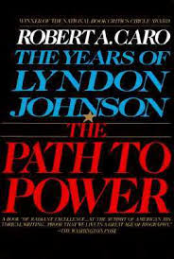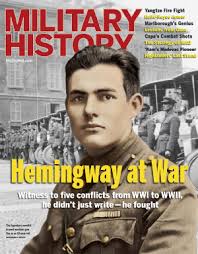Signing Off on the Manuscript
The fate of The Jew who Defeated Hitler is now in the hands of the gods – well, of the editors and production team.
We’ve just completed all the editing of the book and it’s with the production team. My editor Mariel Bard has an eagle eye and was a joy to work with. We’ve gone through it a few times and believe – are really sure – we got all the kinks out.
I did the index last week – a job that’s sort of like walking across Siberia. It doesn’t matter how much you put behind you, there’s always a long way to go. Anyway, the book is done and the next step is printing it.
The Jew Who Defeated Hitler tells the story of Henry Morgenthau Jr.’s work in financing the Allied war effort in WWII, and his work in rescuing European Jews and reorganizing the global economic system. Prometheus Books will launch The Jew Who Defeated Hitler on Nov. 18.
In the next two months, we’ll be lining up promotional events. We’re hoping for events in several cities in Canada and the US. Stay tuned.
Coverage in USA Today
Seventy years ago today, Henry Morgenthau Jr. opened the Bretton Woods Conference at the Mount Washington Hotel, a monumental event in the economic history of the world and the U.S.
The Second World War had been raging for five years, and the Allies were now advancing in the U.S.S.R, France, Italy and in the Pacific. In spite of the global battles, Morgenthau, his chief negotiator Harry Dexter White, and British economic icon John Maynard Keynes led delegates from 44 countries in establishing a new world economic order.
The outcome was astonishing and lasting. The conference created both the World Bank and the International Monetary Fund, both with us still. It established the dollar as the world’s reserve currency. And it made the U.S. the world’s financial capital, replacing London.
That’s well known. What’s less appreciated is that there was never any guarantee the conference would succeed. International conferences had a long history in the early and mid-twentieth century of proving colossal flops. And even if the conference succeeded, the agreement would need two-thirds approval by the U.S. Senate to take effect. That was a tall order, given the hostility to Bretton Woods by the banking community and the GOP. And it had been the Senate that had defeated President Wilson’s dream of the U.S. joining the League of Nations.
What’s even less well known about the Bretton Woods Conference is that it placed a huge strain on one of Morgenthau’s closest friendships. As I wrote this week in USA Today, Treasury officials were convinced the New York Times was trying to sink the conference, even though publisher Arthur Sulzberger was one of Morgenthau’s best friends.
Please check out the USA Today story. Many thanks to Editor David Callaway and his staff for running the piece. The full story of Bretton Woods is one of the key chapters of The Jew Who Defeated Hitler, which is available for pre-order here.
Assessing the New Deal
I’ve been meaning to read Robert A. Caro’s biography of Lyndon Johnson since I noticed a review in the London Times said it set the standards for political biography. If a British paper heaps that kind of praise on an American author, it’s worth taking notice.
I just finished The Path to Power, the first of four volumes published so far in The Years of Lyndon Johnson. (A fifth, detailing the bulk of his presidency, has yet to be published.)
The Path to Power is a spellbinding narrative, broad in its scope, precise in its detail, intriguing in its nuanced portraits. Johnson himself is driven by colossal ambition and void of principles or ideology. Sam Rayburn is a damaged leader-of-men. And FDR is a valiant crusader against self-interest but never afraid to use his considerable political cunning when it serves his purpose.
Henry Morgenthau Jr. makes only a cameo appearance, but the quality that strikes Caro about the Treasury Secretary was his uncompromising rectitude. It’s an astute and well-deserved kudo for Morgenthau, who battles pressure to interfere in a tax investigation of a Democrat campaign.
But this book has a single flaw – not a fatal flaw, but a flaw nonetheless. Though Caro is a master at probing the depths of people’s character, he is thoroughly simplistic in his economic analysis. Economic debate in this book is not a battle between liberal or conservative worldviews. It has nothing to do with generating growth or suppressing inflation or stabilizing currencies. It is simply the oppression of common folk by the evils of big business. Period.
One of the difficulties in chronicling the Roosevelt years is almost all historians and biographers arrive at their task with liberal credentials. (Most of the exceptions are blinded by rabid conservatism and fail to see the good Roosevelt achieved in his first term.)
The problem is there is too little critical assessment of the success and failure of the New Deal. Yes, it rescued the U.S. during the bank crisis of 1933, but it also starved the U.S. of investment of private sector capital investment. And only the war could solve the enduring problem of high unemployment during FDR’s tenure.
With economic history gaining prominence in academia, it’s time to move beyond the image of Roosevelt as the defender of the little guy. Historians and biographers need to apply economic principles to studies of the New Deal. The best history to do so that I’ve read is The Forgotten Man by Amity Shlaes.
My aim in The Jew Who Defeated Hitler is to write a story of the Roosevelt administration’s financing of the Second World War without any ideological bias. When the book comes out in early November, I hope readers will agree that I’ve met that goal.
Introducing Our Book Cover
I want to share the cover for The Jew Who Defeated Hitler, which is now available for pre-order on Amazon.
I love the cover because it highlights the close working relations between Henry Morgenthau Jr. and Franklin Roosevelt in developing the biggest economic program in human history. It also shows the immense media interest in what they were doing. It accentuates just how fascinating this chapter of economic history is.
I find it interesting that this cover resembles Hemingway on the China Front, to the extent that it is a black and white photo with red lettering. I’m developing a theme here.
Many thanks to Nicole Lecht for the wonderful design. You can view her other wonderful covers on her tumblr page at nicolelecht.com.
The Jew Who Defeated Hitler tells the story of Morgenthau’s work in financing the Allied war effort in WWII, and his work in rescuing European Jews and reorganizing the global economic system. Prometheus books will launch The Jew Who Defeated Hitler on Nov. 4.
Morgenthau Coming To Military History
I’m really delighted that an excerpt from the Jew Who Defeated Hitler will appear in the June issue of Military History magazine.
I started writing for the magazine five years ago when Editor Stephen Harding contacted me about a piece on Hemingway at War, which became the cover story in April 2009. I’ve grown to like and admire Stephen, who’s a tremendous historian in his own right. His latest book The Last Battle, is a tremendous read.
The excerpt from The Jew Who Defeated Hitler tells the story of the French purchasing mission that worked with Henry Morgenthau Jr. in 1938-1939 to buy military aircraft. The mission quietly split FDR’s administration, then became a huge scandal following a tragic accident on the West Coast. It’s a rollicking tale from the early days of what would become the biggest economic program in human history. And as you’d expect with this book, Morgenthau was right at the center of it.
We’ve just been through the editing and fact-checking process and, boy, it was thorough! How thorough? An editor and I were exchanging a New York Times story from 1939 and references to a headstone to establish the correct name of an Assistant Secretary of the Treasury. It’s great to work with people who are passionate about their job.
Many thanks for Stephen Harding and his team. I look forward to seeing the magazine, and to the book coming out in November.
The French Mission
 On New Year’s Eve I was working on a submission for a national magazine in the U.S. It’s an excerpt from The Jew Who Defeated Hitler, which I hope will appear when the book is published in the fall (I can now say it’s coming out THIS YEAR).
On New Year’s Eve I was working on a submission for a national magazine in the U.S. It’s an excerpt from The Jew Who Defeated Hitler, which I hope will appear when the book is published in the fall (I can now say it’s coming out THIS YEAR).
As I edited, I realized that one incident in the article had taken place exactly 75 years earlier.
On New Year’s Eve 1938, Henry Morgenthau Jr. found himself in a meeting with Jean Monnet, a representative of the French government who was working on the purchase of military aircraft in the U.S.
The military hated the idea, believing it would interfere with their own orders and expose secret weapons to foreign government. But Morgenthau headed the camp believing the foreign orders would increase production capacity, thereby increasing America’s ability to wage war.
But he found Monnet difficult to work with, largely because the Frenchman insisted on secrecy and refused to divulge how France would pay for the plans.
“I find myself now in the position that the whole United States Army is opposed to what I am doing and I am doing it secretly and I just can’t continue, as Secretary of the Treasury, forcing the United States Army to show you planes which they want for themselves,” Morgenthau told Monnet at the New Year’s Eve meeting.
The story of the French plane purchases is detailed in The Jew Who Defeated Hitler. It is a forgotten incident from the buildup to the Second World War and the economic history of the period. When it became public, it created a short-lived scandal that shook Morgenthau’s Treasury to the core. It cost one US serviceman his life, and almost cost Morgenthau his job. It brought to the surface an issue that would plague the Roosevelt administration throughout the war – the need to supply the frontline European allies while re-arming America.
And in the end, it aided the greatest arms buildup and economic program in human history and showed the determination and frustration of the architect the economic program, Henry Morgenthau Jr.
Christmas and the Morgenthaus
One element of the Morgenthau story I found fascinating as I researched The Jew Who Defeated Hitler was how the family celebrated Christmas.
Henry Morgenthau Jr. was Treasury Secretary during the Great Depression and Second World War – long before society developed an acute sensitivity to the term “Christmas”. So even though he was Jewish, Morgenthau would give and accept wishes of “Merry Christmas”, exchange Christmas presents with people and enjoy Christmas dinner. He was even lampooned as Santa in an editorial cartoon. The holiday seemed to represent the secular Americanism the family cherished rather than a religious rite.
For example, when Under Secretary of Defense Louis Johnson called to discuss the touchy matter of foreign aircraft sales on Dec. 21, 1938, he twice wished Morgenthau a Merry Christmas before they got down to business.
The Morgenthaus spend the holidays of 1940 in Washington, and ate Christmas dinner with the Roosevelts. Precisely a year later, they had Christmas dinner again at the White House, joining Winston Churchill and the British delegation that had come to plan the joint prosecution of the war.
The Morgenthau family – especially the secretary’s parents – was exceedingly generous in their gifts to the Roosevelts. At Christmas and on other occasions, Henry and Josie Morgenthau frequently showered the presidential family with gifts. Eleanor Roosevelt’s voluminous correspondence is packed with thank you letters to them.
Christmas even features in my central thesis, that Morgenthau with the main figure in the biggest financial project in all economic history. He timed his sixth War Bond drive to coincide with the Christmas season of 1944. It was a huge success, exceeding its target by 54 percent and raising a total of $21.6 billion – about $280 billion in today’s money.
So Merry Christmas to the followers of this blog who celebrate Christmas, and Happy Holidays to all others. I’m looking forward to a great 2014, confident that the highlight for me will be the publishing of The Jew Who Defeated Hitler in the fall.
Phew! The Manuscript’s Done.
I’ve finally printed out and burned to disc everything the publisher needs for The Jew Who Defeated Hitler. It was absolutely nerve-racking to push the button on it. There is so much detail about arms program and the wartime economy, I kept looking for mistakes. And I couldn’t fact check it fully because the original documents are in a library in the US. Had to go with my notes. Hopefully, everything is in order. The 18 photos and three charts including the wonderful official portrait, which the US Treasury was kind enough to let me use. We’re on track to have the book out with Prometheus Books in the fall of 2014.
Delighted to Work with Prometheus
Last Friday, Oct. 11, was the 75th anniversary of a meeting between Secretary of the Treasury Henry Morgenthau, Jr. and his two closest aides, Herman Oliphant and Harry Dexter White. Gathering in Morgenthau’s office at the Treasury, they discussed countervailing duties against Germany and Japan, and an effort to persuade President Roosevelt to rearm for the coming conflict. The thing that’s notable about the meeting for me is it is the opening scene of The Jew Who Defeated Hitler.
It’s a mild coincidence that 75 years after this meeting, I concluded an agreement with Prometheus Books of Albany, N.Y., to publish The Jew Who Defeated Hitler in the fall of 2014. (To be precise, we concluded the agreement Thursday, but who’s counting?) I’m thrilled to be working with Steve Mitchell and his team at Prometheus. They have a tremendous catalogue and I’m honored to think my book will be added to it in a year.
The book is virtually finished and I hope to have it to Steve in a few weeks.
I’d like to send special thanks to my tremendous agent, Roger Williams of New England Publishing Associates, for selling the book. Roger’s predecessors, Elizabeth Knappman-Frost and the late Ed Knappman, were also instrumental in getting this project going.
So on this Thanksgiving, I’m especially thankful for the great work these friends have done, and that this book will be out in a year. Please keep following this blog as there will be a lot more news.
The Screening of Good Fortune
On Monday, I’ll be in New York for the private screening of “Good Fortune — The Story of Morgenthau”, a full-length documentary on the Morgenthau Family.
Good Fortune tells the tale of Henry Morgenthau, Henry Morgenthau Jr. and Robert Morgenthau, and their service to the United States. I was honored to be interviewed for this production and hope my clips are used in the final version. I guess I’ll know tomorrow night.
The documentary is due to be broadcast on the Public Broadcast System later this year, and I will post the times and dates when I know more.
On Tuesday, I’ll be sitting down and talking to Robert Morgenthau, the former Attorney for Manhattan, about his father’s role in the Second World War. It will be a real privilege to meet Mr. Morgenthau, whose cases include the prosecution of Wall Street insiders, crime bosses, Bernard Goetz and the Central Park Rapist.
I’ve almost finished writing The Jew Who Defeated Hitler, and feel confident it will be published in the autumn of 2014. As a buildup to publication, I will be blogging regularly on this site. Please follow me on @peterdmoreira on Twitter or Peter Moreira on Google+. I’ve found far too much material to include in the book and plan to post some lively blogs here.








